Here is a clean and elegant automation code for your use case.
Some assumptions that I have made on your pdf.
- Lets say I am considering each data as an entity which contains the following fields

Line 1
Our Ref:
Name:
Ref 1:
Ref 2:
Line2
Amount:
Total Paid:
Balance:
Date of A/C:
Date Received:
Line3
Last Paid:
Amt Last Paid:
A/C Status:
Collector :
Line4
Date (Column name)
Notes (Column name)
And then multiple line of Date and Notes values
- I assume that each data will be separated by one new blank line. As shown here.

Also there will be no other attributes apart from the ones listed above in your data.
Also there will always be 3 line of actual key:value and then the table for Date and Notes start.
CODE
Before you move ahead please install the package pdfplumber
pip install pdfplumber
All you need to change in the below code is the pdf_path
import pdfplumber
import re
# regex pattern for keys in line1
my_regex_dict_line1 = {
'Our Ref' : r'Our Ref :(.*?)Name',
'Name' : r'Name:(.*?)Ref 1',
'Ref 1' : r'Ref 1 :(.*?)Ref 2',
'Ref 2' : r'Ref 2:(.*?)$'
}
# regex pattern for keys in line2
my_regex_dict_line2 = {
'Amount' : r'Amount:(.*?)Total Paid',
'Total Paid' : r'Total Paid:(.*?)Balance',
'Balance' : r'Balance:(.*?)Date of A/C',
'Date of A/C' : r'Date of A/C:(.*?)Date Received',
'Date Received' : r'Date Received:(.*?)$'
}
# regex pattern for keys in line3
my_regex_dict_line3 ={
'Last Paid' : r'Last Paid:(.*?)Amt Last Paid',
'Amt Last Paid' : r'Amt Last Paid:(.*?)A/C Status',
'A/C Status': r'A/C Status:(.*?)Collector',
'Collector' : r'Collector :(.*?)$'
}
def split_on_empty_lines(s):
''' This function splits the pdf on data chunks and returns the data chunk in list '''
blank_line_regex = r"\n *\n{1}"
return re.split(blank_line_regex, s.strip())
def iterate_through_regex_and_populate_dictionaries(data_dict, regex_dict, text):
''' For the given pattern of regex_dict, this function iterates through each regex pattern and adds the key value to regex_dict dictionary '''
for key, regex in regex_dict.items():
matched_value = re.search(regex, text)
if matched_value is not None:
data_dict[key] = matched_value.group(1).strip()
def populate_date_notes(data_dict, text):
''' This function populates date and Notes in the data chunk in the form of list to data_dict dictionary '''
data_dict['Date'] = []
data_dict['Notes'] = []
iter = 4
while(iter < len(text)):
date_match = re.search(r'(\d{2}/\d{2}/\d{4})',text[iter])
data_dict['Date'].append(date_match.group(1).strip())
notes_match = re.search(r'\d{2}/\d{2}/\d{4}\s*(.*?)$',text[iter])
data_dict['Notes'].append(notes_match.group(1).strip())
iter += 1
if(__name__ == '__main__'):
pdf_path = r'C:\Users\hpoddar\Desktop\Temp\sample.pdf' # ENTER YOUR PDF PATH HERE
pdf_text = None
json_data = []
with pdfplumber.open(pdf_path) as pdf:
first_page = pdf.pages[0]
pdf_text = first_page.extract_text()
data_list = split_on_empty_lines(pdf_text)
for data in data_list:
# split by new line in data chunks
data_after_split_on_new_line = re.split(r"\n", data.strip())
data_dict = {}
# Process line 1 in the data chunk
iterate_through_regex_and_populate_dictionaries(data_dict, my_regex_dict_line1, data_after_split_on_new_line[0])
# Process line 2 in the data chunk
iterate_through_regex_and_populate_dictionaries(data_dict, my_regex_dict_line2, data_after_split_on_new_line[1])
# Process line 3 in the data chunk
iterate_through_regex_and_populate_dictionaries(data_dict, my_regex_dict_line3, data_after_split_on_new_line[2])
# Check if the next line conatins table column Date and Notes
if(len(data_after_split_on_new_line) > 3 and data_after_split_on_new_line[3] != None and 'Date' in data_after_split_on_new_line[3] and 'Notes' in data_after_split_on_new_line[3]):
populate_date_notes(data_dict, data_after_split_on_new_line)
json_data.append(data_dict)
print(json_data)
This gives us the data in a clean elegant way in json format.

Now that we got the data in a json format, we can load it in a csv, text or data frame format.
Please let me know if you need any information on any part of the code or you need the full explanation of the code.





